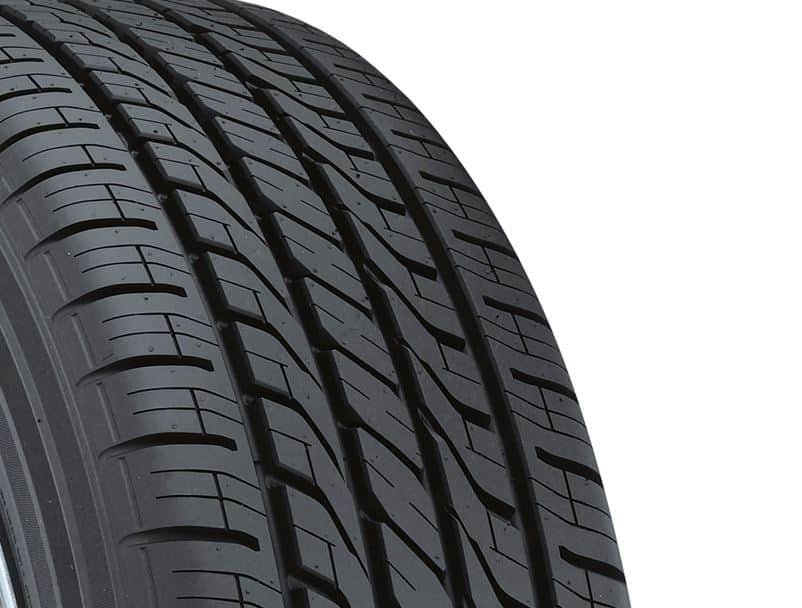Auto
Determining If You Need All-Weather Tires Or Other Types Of Tires

In countries that experience the winter season, the temperatures begin to decrease drastically around September. The change in weather conditions leads vehicle owners to determine if they should get new vehicle tires. Depending on various factors, the new tires might be all-weather tires or other tire types.
In some countries and locations, you are usually given a discount if you change your tires based on seasonality. There are always the appropriate tires for different seasons, and you need to ensure you get the right tire for your vehicle and ease of functionality for the conditions associated with different weather. Here is a discussion on determining if you need all-weather tires or other tires.
[lwptoc]
-
Know Your Tires Size
You need to pay attention to three numbers when getting new all-weather tires online or any other types of tires in that case. These main numbers are the profile, the width, and the rim size.
There are two places you can find the numbers for your tire size, it is either on a sticker found on the inside of the door car or the side wall of the tire.
There might be several numbers on the tire’s sidewall, but the only important ones are the three mentioned here. These numbers are important because they are the ones that determine if the tire will fit on your vehicle.
The first number is usually the width representing the tire width in millimeters. The width of the tire affects how the vehicle corners.
Secondly, it is the profile dimensions. This is usually an aspect ratio that stands for how thick or tall the tire is. This number also stands for a percentage of the width, and it helps you know how thick your general diameter is, which is an important consideration when fitting new tires on the vehicle.
The last number is usually the rim size. If you get the wrong rim size, the tires will not fit on your vehicle.
-
Know The Seasons
Seasons play a major role in determining the type of tires to be driving in. there are several types of seasonal tires, such as snow tires, summer tires, and all-seasons tires, among others.
Summer tires are usually useful for their grip on dry and warm roads. The rubber to make all-weather tires is usually softer than all-season tires, but winter tires have much softer rubber.
The tread in summer tires is usually apart to aid the tire in remaining flat on the surface of the road. The rubber used in summer tires is too soft to solidify in low temperatures so it can slide on snow and ice.
All seasons tires are affordable and versatile, which is why many vehicle owners use them. The tires are usually harder than the summer tires, a characteristic that helps them better grip in different seasons of the year.
However, the hard tire may become too hard during the winter, making it impossible to grip on icy and snowy roads.
You should understand the season in your location before deciding on the type of tire to mount on your vehicle.
-
Know Your Specialty
In some locations, some tires are dangerous or illegal to use. As a tire’s shopper, you should be aware of such rules when buying tires. These rules are usually set to minimize road accidents due to using the wrong tire for the wrong season.
The track tires are usually made of very soft rubber, which helps in provide good gripping for convenience in racing. If you are getting tires for your truck, the truck tires will be the best option in this case.
Off-road tires are often known as mud tires. They are the best option if you are looking for tires to help you on unstable surfaces. The mud tires are usually manufactured with chunky tread, which helps the vehicle maneuver in rocky, muddy, and rough roads no matter the weather condition.
-
The Bottom Line
There are so many things that can be used to determine the best type of tire for your vehicle. When choosing whether to buy all-weather tires online or other types of tires is important to consider the convenience and your vehicle type. This way, you can protect yourself as the driver and other road users.
Check out: Should You Trade Your Wrangler for a Bronco?
-

 Celebrity4 weeks ago
Celebrity4 weeks agoIs YNW Melly Out Of Jail? What Is The YNW Melly Release Date, Career, Early Life, And More
-

 Sports4 weeks ago
Sports4 weeks agoMore Than Just a Game: How College Sports Can Shape Your Future
-

 Tech3 weeks ago
Tech3 weeks agoAI Software: Transforming the Future of Technology
-

 Tech3 weeks ago
Tech3 weeks agoAll About Com. Dti. Folder Launcher: Features, Benefits, Tips, And More













